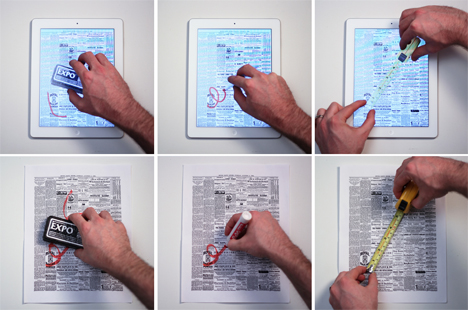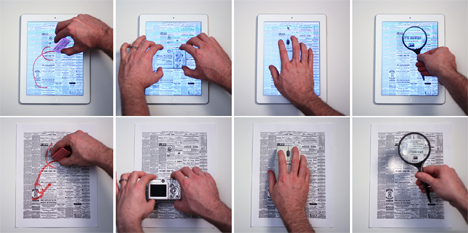
Most of our devices utilize touch technology in some way: the track pads on our laptops, the screens on all-in-one desktops, and just about everything on our smartphones. Even when the gestures are deemed “intuitive” by the manufacturers, in reality they are unnatural movements we get used to by using these devices.
Chris Harrison of CMU’s Future Interfaces Group is working on a set of virtual tools called Touchtools that mimic the physical tools we use in the real world, making our interactions with technology simpler and more life-like. The suite of tools includes a marker, a large eraser, a small eraser, a camera, a tape measure, a magnifying glass, and even a computer mouse.

By using gestures that correspond to the way we would handle these objects in real life, the novel interfaces make remembering and using the actions simple and truly intuitive. Users hold their hands in the position they would if using that tool in real life, pressing a hand into the screen to activate and use the tool.
Rather than the cumbersome toolbars that some programs utilize, the Touchtools allow for fluid interactions with the device. There’s no learning new commands or remembering how many fingers to zoom or double-click; just the natural motions of using real-world tools converted to a digital setting.

